Klimaendring
Photo: rawpixel.comJørgen Berge
Prorektor for forskning og utvikling
Unit: University Academic Services
Arktisk marinbiologi, polarnatt, dyreplankton, organismer tilknyttet drivisen i polhavet, effekter av klimaendringer
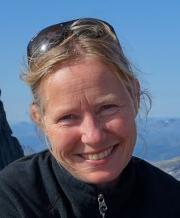
Kari Anne Bråthen
Professor
Unit: Department of Arctic and Marine Biology
Jeg er interessert i planters funksjonalitet i sine økosystemer, spesielt i samspill med herbivorer og hvordan planter i sine samfunn endrer seg med klimaendringene. Jeg er også opptatt av hva som fremmer biodiversitet samt sammenhengen mellom biodiversitet og plante- og økosystemfunksjonalitet. Prosjekter som jeg for tiden er delaktig i er;
MONEC - To manage or not: assessing the benefit of managing ecosystem disservices
COAT - Climate-ecological Observatory for Arctic Tundra
ECOGEN - Ecosystem change and species persistence over time: a genome-based approach
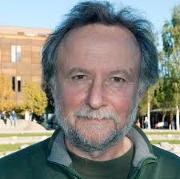
Rolf Rudolf Gradinger
Professor
Unit: Department of Arctic and Marine Biology
Rolf Anker Ims
Professor i økologi
Unit: Department of Arctic and Marine Biology
- Populasjons -, samfunns – og økosystemdynamikk, spesielt i boreale og arktiske miljøer
- Effekter av klimaendringer i boreale og arktiske økosystemer
- Adaptiv overvåkning og forvaltning av populasjoner og økosystemer
Malin Johansson
Førsteamanuensis / Gruppeleder Jordobservasjon
Unit: Department of Physics and Technology
Using SAR and optical imagery combined with in-situ data to study oil spill, sea ice and snow. The aim is to detect the oil, sea ice and snow and connect it to the underlaying physics of the material.
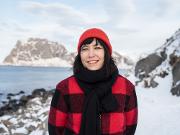
Berit Kristoffersen
Førsteamanuensis
Unit: Department of Social Sciences
Jack Christopher Landy
Førsteamanuensis / Jordobservasjon
Unit: Department of Physics and Technology
Laurene Pecuchet
Associate professor
Unit: The Norwegian College of Fishery Science
Research in fish populations, fish communities, and marine food web. I am studying the impacts of global change on marine ecosystems, from fish populations to the food web by combining empirical analysis of scientific surveys, trait and environmental datasets, and modeling tools.
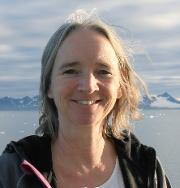
Tine Lander Rasmussen
Professor, CAGE
Unit: Department of Geosciences
Marin geologi og geofysikk.
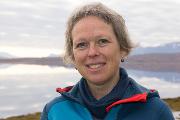
Marit Reigstad
Professor
Unit: Department of Arctic and Marine Biology
- Arktiske og subarktiske marine økosytem
- Plankton
- Pelagisk-bentisk kobling
- Økosystemrespons på endring i klima
Fokusområder: Barentshavet, Polhavet, Framstredet, kyst- og fjordsystemer
ARCTOS forskernettverk medlem (www.arctos.uit.no)
Forskningsgruppe Arktisk marin systemøkologi (AMSE)
Forskningsprosjekt:
SEDNA Co-PI (NFR, 2025-2029, Assess Seasonality in Pelagic Diversity and Carbon Export within the Central Arctic Ocean) del av Tara Polar Station drift, Tara Polaris 1.
Arven etter Nansen (NFR, 2018-2024) (www.nansenlegacy.org), PI
Polar Ocean Mitigation Potential (EU, POMP, 2024-2027), WP co-lead
Arctic Passion (EU, Atlantisk-Arktisk DBO, Styringsgruppen)
HAVOC (NFR, Vertikal fluks under skrugarder)
A-TWAIN (Framsenteret, Observatorium på sokkelskråningen mot Polbassenget)
CLEAN (Framsenteret, Samlet effekt av påvirkning - eksempel Barentshavet)
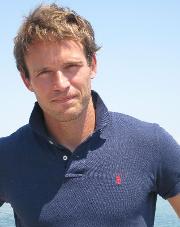
Martin Rypdal
Professor/Instituttleder
Unit: Department of Mathematics and Statistics
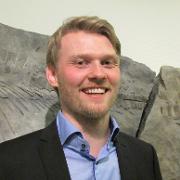
Alexander Tøsdal Tveit
Førsteamanuensis (Leder av CECO laben)
Unit: Department of Arctic and Marine Biology
Research interests
I am a microbiologist with a PhD in microbial ecology from UiT, The Arctic University of Norway. I work with microorganisms that are involved in the production and consumption of methane and carbon dioxide, and how they interact in soils and sediments. In particular i want to understand how climate change influences microbial physiology and the effects on carbon cycling.
Currently I am leading the research lab and team Cells in the Cold (CECO) laboratory with financial support from Tromsø research foundation and the research council of Norway. In our lab we perform studies in three major directions where the aim of each part is to contribute knowledge about microorganisms with an important role in global carbon cycling.
I) Physiology and ecology of atmospheric methane oxidizing bacteria and other methanotrophs (see CECO-LoAir).
We have isolated the first pure culture of an atmospheric methane oxidizing bacterium and characterized it phylogenetically, genomically and functionally. These initial findings were published in PNAS in 2019 and the study was awarded the prestigous Cozzarelli Prize by the National academy of sciences, USA (See CV in attachments). Now we are working to identify the phylogenetic distribution of atmospheric methane oxidation and to understand how they are able to live on trace-gases in air. Ongoing experiments will also uncover how these microorganisms react to the atmospheric composition predicted for the future and how they survived under the lower greenhouse gas concentrations in the atmosphere prior to the industrial revolution. From recent findings we also see a large untapped biotechnological potential in these organisms and are preparing for moving in an applied direction in the coming years.
II) Long-term soil warming effects on microbial metabolisms (see CECO-ForHot)
Using geothermally warmed grassland soils in Iceland as a model system we study how the metabolic activities of specific microbial populations are modulated in soils affected by long term warming. Our recent study, published in Science in April 2022 (See CV in attachments), demonstrate that adjustments of the protein biosynthesis machinery is central to how soil microorganisms respond to global warming. This study has attracted alot of attention from our colleagues and may represent critical knowledge for understanding global warming effects on soil ecosystems.
III) Carbon cycling in Arctic peatlands (see CECO-TimeEnergy and CECO-InterACt).
We are studying how organic matter in Arctic peatlands is degraded, which organisms are involved and how they interact. This includes general physiological responses to temperature, organisms involved in syntrophy and methanogenesis, and also microbial food web interactions. Our work on this springs from three studies published in PNAS and ISME in 2013 and 2015 (See CV in attachments).
Currently, three topics within this direction are of primary interest to us:
1) Microbial physiological responses to temperature change, focusing on protein biosynthesis adjustments.
2) Effects of above-ground herbivory and plant community changes on the microbial foodweb dynamics and methanotrophic community below-ground
3) Anaerobic carbon dioxide fixation, which may be an important but overlooked process in Arctic peat.
Monica Winsborrow
Førsteamanuensis, iC3
Unit: Department of Geosciences
Nigel Yoccoz
Nestleder forskning og professor
Unit: Department of Arctic and Marine Biology
Kvantitative metoder (statistisk og matematisk modellering, study design) i Økologi og Evolusjonær Biologi. Er interessert i både populasjons-, samfunns- og økosystemsøkologi, og i dyr, planter og andre organismer. Stort fokus på effekter av klimaendringer, og hvordan vi kan forutsi endringene i årene som kommer.